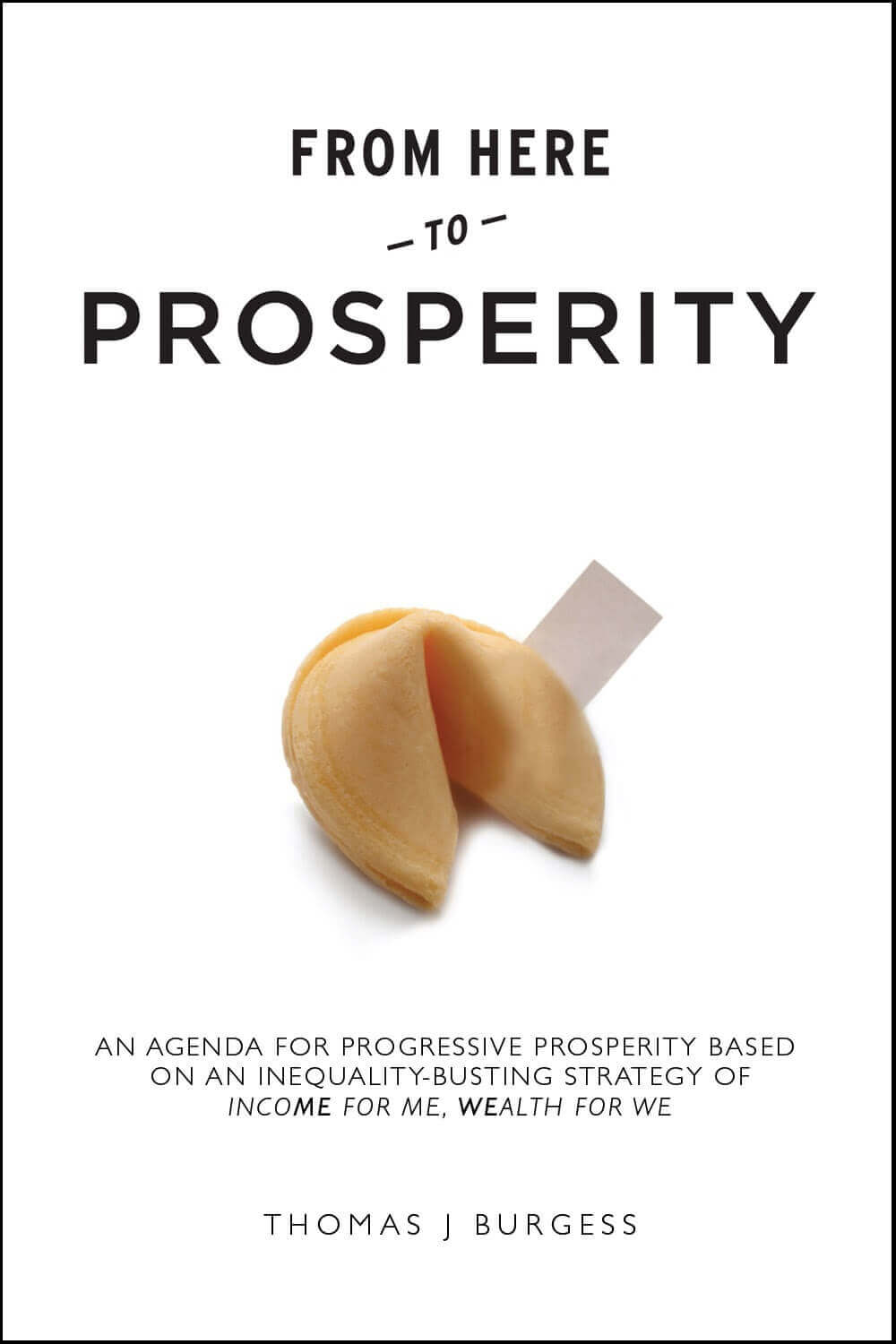In the first in a series of five posts introduced here, the author of our latest release, From Here to Prosperity, explains how to reduce wealth inequality by shifting to a more fair tax code.
There is plenty of rhetoric about the wealthy paying their fair share of taxes, but there is very little about what is fair and the details of how we could make this happen. The way to be fair is to shift the tax base away from income and more to wealth. I outline here one approach as to how such reforms could be implemented.
The wealth of a country is not created just by entrepreneurs, shareholders and landowners but by the real stakeholders: the majority. We are all the wealth creators. We do the work, take the risks, increase the jobs, grow the demand. In short, we create wealth.
This is why a fair economic system needs to ensure that those who create the wealth, share in the wealth. There is moral argument that we all create the wealth and therefore it should be shared more equitably. The tax system can be a tool to achieve this.
If everyone had an opportunity to share in the wealth they created, they would be able to accumulate wealth and feel more secure about their future. Once you have accumulated wealth, you have choices, you have freedoms; you are in position to financially contribute to society to make it better for all. The quality of life for many would be improved even with just a little wealth.
There is a big difference between creating wealth and accumulating wealth. People can accumulate wealth by buying assets especially those that that rise in value. In order to buy wealth you have to have money, you have to have enough money to live off so that you have some left over to buy wealth!
Under the current system this then entitles you to be the beneficiary of any increase in value of that wealth asset even though the increase in value has nothing to do with your effort and has in fact been increased as a result of the work of others. So it would be fair that some of the wealth you have accumulated is in fact returned to those that helped create it.
If we agree on the principle that we all create the wealth but it is currently accumulated by a few, then a convenient way of returning the public share back to the public is through taxation. This could be achieved by what has often been described as wealth tax, a contribution to public revenue based on the value of personal assets which I would prefer to call a Personal Asset Contribution (PAC). The top 1% own assets worth $30 trillion, that’s 35% of US household wealth, that’s the folks with over $8.4million in assets so an annual tax of just 2% on these assets could raise $600 billion. This proposal causes no hardship and helps share the wealth we all help to create instead of too much being accumulated by too few.
Private wealth is expected to grow 4% by 2019, so if you have $8.4 million in assets you could realistically expect that to increase in value by $336,000 per year, 6.5 times the median wage. Then if half that (2% of net asset value) $168,000 went in tax that is hardly any hardship or impact on lifestyle. This will cause no adverse effect on daily living standards, as it will only affect those who already have a very comfortable lifestyle. At the same time it would enable considerable relief to the majority of the population and contribute towards the wealth they all created, being shared more equitably and take funds out of storage significantly boosting the economy, creating jobs and opportunity for all by returning funds into circulation. It will also mean that the level of public revenue is maintained but without the “squeezed middle” paying a damaging percentage out of their earned income.
Such a proposal is not restricted to those with the most progressive views. Professor Ronald McKinnon of Stanford University outlined the “Conservative Case for a Wealth Tax” in the Wall Street Journal, January 2012. He wrote that “there is a strong case for reforming income taxes—both the personal and corporate—to increase efficiency and generate more revenue. Because wealth will generally present a much larger tax base than income, tax rates can be kept very low and still raise substantial revenue.”
As Franklin D. Roosevelt said in 1936 “Here is my principle: Taxes shall be levied according to ability to pay. That is the only American principle.”
The other aspect of ensuring wealth is shared more equitably is through the reform of property taxes which could enable infrastructure investment to be self financing. This can described in more detail in another article.







